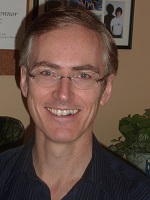<xml>
<xml>
Normal
0
false
false
false
EN-US
X-NONE
X-NONE
<xml>
<style>
/* Style Definitions */
table.MsoNormalTable
{mso-style-name:”Table Normal”;
mso-tstyle-rowband-size:0;
mso-tstyle-colband-size:0;
mso-style-noshow:yes;
mso-style-priority:99;
mso-style-parent:””;
mso-padding-alt:0cm 5.4pt 0cm 5.4pt;
mso-para-margin:0cm;
mso-para-margin-bottom:.0001pt;
mso-pagination:widow-orphan;
font-size:12.0pt;
font-family:”Calibri”,”sans-serif”;
mso-ascii-font-family:Calibri;
mso-ascii-theme-font:minor-latin;
mso-hansi-font-family:Calibri;
mso-hansi-theme-font:minor-latin;
mso-ansi-language:EN-US;
mso-fareast-language:EN-US;}
Timothy O’Connor is Professor of Philosophy at Indiana University and a member of its Cognitive Sciences Program. He received the Ph.D. in philosophy in 1992 from Cornell University. He has been a research fellow at the University of Notre Dame, the University of St. Andrews and the University of Oxford. Dr. O’Connor is a specialist in metaphysics, philosophy of mind, and philosophy of religion. He has lectured widely in the U.S., Europe, and Asia and is the author of seventy scholarly articles and two books and is a contributing editor of seven other volumes.
Dr. O’Connor has written extensively on philosophical questions concerning human free will, the topic of his first book. In the last several years, He has become especially interested in considering the emerging sciences of brain and behavior and the question of whether and how they pose challenges to ordinary notions of freedom and moral responsibility. He is also interested in exploring God’s causal relation to the universe and the relationship of theistic and scientific explanations.
Dr. O’Connor’s 2008 book Theism and Ultimate Explanation touches on some preliminary science-religion issues. He has recently lectured on the in-built limits of scientific explanation and the complementary role of theistic explanations. He has taught university courses addressing this topic, including a first-year university course entitled “Philosophical Reflections on Evolution and Religion.”
Recent selected publications:
- Religious Faith and Intellectual Virtue, co-edited with Laura Frances Callahan. Oxford U Press, 2014.
- Theism and Ultimate Explanation, Blackwell, 2008
- Top-down Causation: An Integrating Theme Within and Across the Sciences?
- co-edited with George F.R. Ellis and Denis Noble. Themed issue of Interface Focus: A Journal of the Royal Society 2 (Feb), 2012, 1-140
- Downward Causation and The Neurobiology of Free Will, co-edited with George F. R. Ellis and Nancey Murphy. Springer, 2009
- A Companion to the Philosophy of Action, co-edited with Constantine Sandis. Blackwell, 2010
- Emergence in Science and Philosophy, co-edited with Antonella Corradini, Routledge, 2010
- “Science and Christian Faith: The Pursuit of an Integrated and Complete Understanding of Humanity and the Cosmos,” in Gregg Caruso, ed., Science and Religion: 5 Questions. Automatic Press/VIP, 2014.
- “Conscious Willing and the Emerging Sciences of Brain and Behavior,” in Ellis, Murphy, and O’Connor 2009 [above], 173-186
- “Emergence and the Metaphysics of Group Cognition” (with Georg Theiner), in O’Connor and Corradini 2010 [above], 78-117
- “Is Nonreductive Physicalism Viable Within a Causal Powers Metaphysic?” (with John Ross Churchill), in Graham and Cynthia Macdonald, eds., Emergence in Mind. Oxford: Oxford University Press, 2010, 43-60
- “Emergent Individuals and the Resurrection” (with Jonathan D. Jacobs), European Journal For Philosophy of Religion 2, 2010, 69-88
- “Agent Causal Theories,” in Robert Kane, ed., Oxford Handbook of Free Will, 2nd Rev. Ed. New York: Oxford University Press, 2011, 309-328
- · “The Argument from Consciousness Revisited” (with Kevin Kimble), Oxford Studies in the Philosophy of Religion 3, 2011, 110-141
- · “The Philosophical Implications of Emergence,” in James Haag, Gregory Peterson, and Michael Spezio, eds., Routledge Companion to Religion and Science. Routledge, 2011, 206-222
- · “Could There Be a Complete Explanation of Everything?” in Tyron Goldschmidt, ed., The Puzzle of Existence: Why Is There Something Rather Than Nothing? Routledge, 2013




